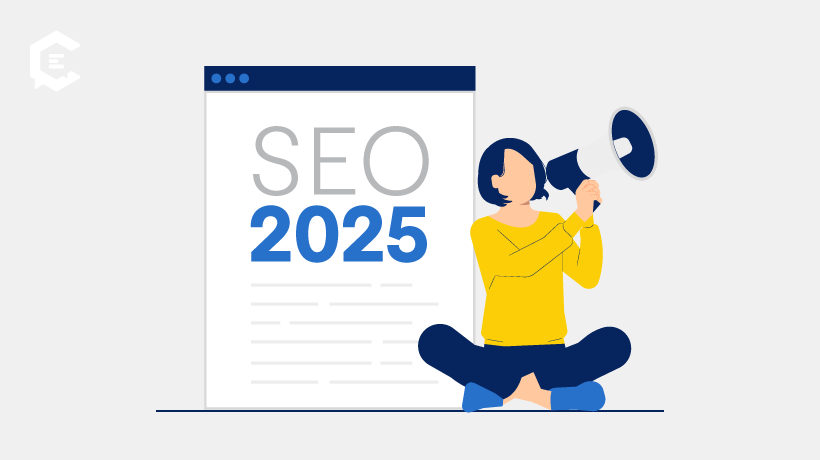Are you tired of hearing that SEO is dead? Join the club. While SEO has evolved dramatically, it’s very much alive. So why does it feel like everyone’s panicking about its demise?
AI search engines and large language models (LLMs) have fundamentally changed how people search. Now, users can get answers directly on the search results page — no click required. And yes, that shift has caused many businesses to see a dip in impressions and clicks.
But here’s the truth: SEO isn’t dying; it’s transforming. And if you want to keep showing up where your audience is searching, your strategy has to evolve, too.

Is SEO dead?
No, SEO isn’t dead, but AI and LLMs have changed search forever. The fundamentals of SEO — quality content, authority, and technical soundness — remain just as critical. But now they should be paired with strategies for generative search.
It also requires a big mindset shift. Ranking #1 is no longer the only goal. What matters now is being referenced — by AI search engines, LLMs, and the platforms where your audience actually discovers information.
Here’s what’s changed:
-
Zero-click searches are rising: A study by Semrush found that the number of site visits generated from LLMs and AI search engines will surpass traditional organic search by 2028.
-
Top rankings don’t guarantee clicks anymore: Even if you land in position #1, you may get buried under AI-generated summaries and sidebars.
This means it’s time for you to include generative engine optimization (GEO) in your SEO strategy. When you pair GEO tactics with solid SEO fundamentals, you’ll stay visible wherever your audience is searching.
Why Are Digital Marketers Saying SEO Is Dead?
Some marketers claim SEO is dead because AI-powered search has completely rewritten the rules. Users can now get answers instantly — without ever clicking a link — and that’s shaken up traditional strategies.
AI Search Is Stealing Clicks
Google’s AI Mode and AI Overviews surface detailed answers directly on the results page. For many queries, users never need to visit a website. In fact, another Semrush study found that only 32% of the links in Google’s AI Mode sidebar overlap with the top 10 traditional search results. Translation: Ranking #1 no longer guarantees visibility.
Search Is More Fragmented Than Ever
Users aren’t just searching on Google anymore. They’re turning to AI tools, Amazon, and social platforms like ChatGPT, TikTok, Reddit, and Pinterest to research and make buying decisions. If you’re only optimizing for Google, you’re missing where your audience spends time.
Competition Is Skyrocketing
AI-generated content has flooded the web, pushing Google to deindex low-quality pages and reward authority-driven content. At the same time, AI Overviews can overshadow even top-ranking results, making “position #1” less valuable than ever.
How to Update Your SEO Strategy in 2025
It’s not all doom and gloom. You just need to rethink your approach to stay competitive. Here’s how:
Keep SEO Fundamentals Strong
High-quality content, on- and off-page optimization, and clear authority signals are still the foundation of SEO. Google also continues to prioritize E-E-A-T — experience, expertise, authoritativeness, and trustworthiness — when deciding what to show in results.
And user experience matters more than ever: fast-loading pages, mobile-friendly design, and intuitive navigation all help your content earn visibility with both traditional search engines and AI-driven tools.
Make Your Content Easy for AI to Cite
Want to improve your chances of getting your brand mentioned by AI search engines and LLMs? Create content that’s designed to be cited, summarized, and recommended:
-
Structure content with Q&A-style headings that mirror the way people naturally search. Use conversational, long-tail keywords that match the highly specific queries used in AI chatbots. For example, instead of targeting “leaky pipe repair,” use “How do I fix a leaky pipe without having to replace it?” to align with AI-driven results.
-
Publish authoritative, quotable insights that LLMs can confidently cite. Include expert commentary, original data, or unique perspectives to make your content more reference-worthy. The more you sound like an authority, the more likely AI tools will surface your content in summaries.
-
Support claims with credible sources to increase trustworthiness and citation potential. Link to high-authority publications, government data, or well-known experts in your industry. AI engines prioritize content that connects to recognized, reputable sources.
-
Use clear, concise answers in your content so AI can easily extract key takeaways. Start each section with a one- or two-sentence answer before expanding into supporting details. This improves your chances of being featured in AI Overviews and LLM responses.
-
Create comparison tables, data summaries, and stats that make your content “reference-ready.” AI search tools favor structured, scannable formats because they’re easy to summarize. Tables and bullet lists increase the likelihood that your content will be pulled directly into AI-generated responses.
-
Track AI citations to see where (and if) you’re being mentioned — then fill content gaps proactively. Tools like Semrush’s AI SEO Toolkit, Similarweb’s AI Chatbot Traffic, and Authoritas help you monitor mentions, track share of voice, and compare your visibility against competitors. Once you know which AI tools are overlooking your brand, you can create content specifically designed to target those opportunities.
Be Everywhere People Search
Search is no longer limited to Google. Your audience is discovering brands and solutions on TikTok, Reddit, YouTube, Pinterest, Amazon, and AI chatbots.
To stay visible:
-
Target fragmented discovery by tracking where your audience searches — AI chatbots, marketplaces, or social search — and optimize accordingly.
-
Repurpose content into platform-native formats like TikTok shorts, Reddit threads, YouTube explainers, or Pinterest visuals.
-
Engage with users on these platforms. Answer questions, join conversations, and build authority in spaces like Reddit, Quora, and TikTok comments where your audience actively seeks advice and recommendations.
Leverage Google Shopping and LLM product feeds
Shopping results are becoming a bigger SEO opportunity, especially as AI tools integrate product data. Set up a Google Merchant Center account and optimize your product feed to improve visibility. ChatGPT has even introduced a form merchants can use to be notified when product feeds can be submitted directly — a sign of where generative search is headed.
Double Down on Authority Signals
Google’s growing Knowledge Graph now places more weight on people entities, meaning content written by real experts and supported by authoritative sources is more likely to rank. Invest in bylined authors, cite trusted references, and build signals of trust (like reviews and case studies) into your content.
Stay Ahead of AI-Driven SEO
Here’s how to future-proof your strategy:
-
Create content clusters that establish topical authority. AI tools favor sources that cover a subject comprehensively, not just single keywords.
-
Optimize for conversational prompts. Look at how people phrase queries in ChatGPT, Perplexity, and Google AI Mode, then align your headings and subheadings accordingly.
-
Monitor AI trends continuously. Tools like AnswerThePublic can reveal the questions users ask in search, which you can use in your content marketing efforts.
-
Think beyond traffic. Branded mentions in AI summaries are becoming key signals of authority and trust. Having a strong, multi-channel online presence is an essential component of staying visible.
Defibrillate Your SEO with ClearVoice
It’s clear that the SEO industry is in a transformative phase. Just as a defibrillator can shock a heart back to life, your SEO may need a similar jolt to keep up with the times. The right strategy and approach can breathe new life into a stagnant SEO campaign, boosting its performance and driving better results.
To zap your SEO strategy back to life, you can rely on ClearVoice. You get your own team of content experts, from writers and editors to content strategists and SEO specialists, to reinvigorate your marketing. Connect with a content specialist today to learn more.






